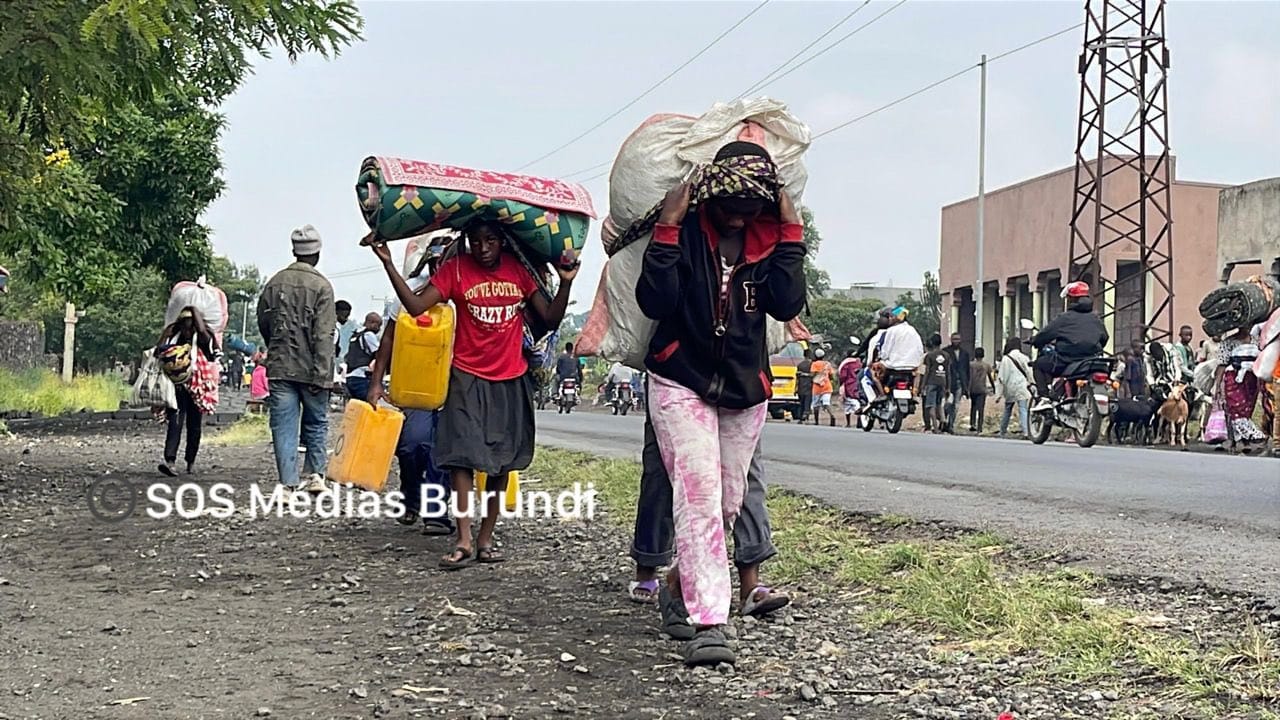DRC : an agreement in Doha, chaos in the East

SOS Médias Burundi
Bukavu, July 21, 2025 – While Kinshasa and the M23 had just signed an agreement of principles in Doha for a ceasefire, violent fighting resumed less than 24 hours after the signing in eastern Congo. This renewed tension raises questions about the true scope of the commitment made in Qatar.
The government of the Democratic Republic of Congo and the Congo River Alliance/March 23 Movement (AFC/M23) signed a Declaration of Principles for a Comprehensive Peace Agreement on Saturday, July 19, in Doha, Qatar. The text, initialed after three months of direct negotiations facilitated by the State of Qatar, aims to frame the next stages of the peace process.
The declaration sets out several commitments :
Respect for a permanent ceasefire, including a halt to attacks by air, land, sea, or lakes, an end to all hate propaganda, and a ban on the use of force;
The creation of a ceasefire verification mechanism involving MONUSCO and regional mechanisms if necessary;
Confidence-building measures, including the establishment of a mechanism, facilitated by the ICRC, to organize the release of detainees of interest;
A roadmap for restoring state authority in eastern DRC, which will be specified in the upcoming peace agreement;
A commitment to the voluntary and dignified return of refugees and internally displaced persons, in coordination with host countries and the UNHCR.
The Congolese government was represented by Sumbu Sita Mambu, Special Representative of the President for the Luanda and Nairobi processes. The AFC/M23 was represented by Benjamin Mbonimpa, the movement’s permanent secretary.
Both parties committed to immediately implementing the provisions of the Declaration of Principles, no later than July 29, 2025, and to beginning negotiations on the peace agreement no later than August 8, with a planned signature by August 18. The document also expresses the two delegations’ appreciation for Qatar’s mediation role, the support of the United States, and the assistance of the African Union.
Fighting erupts the day after the signing
Less than 24 hours after the signing of the Agreement of Principles, violent clashes erupted on Sunday, July 20, between M23 rebels and local Wazalendo militias on the Businga-Kanjabi-Munganzo axis, in Walungu territory, South Kivu.
This fighting paralyzed all activities in the villages of the Nyangezi-Karongo groupment. The Businga market, usually bustling on this Sunday, remained deserted. Shops closed, streets empty, and residents confined : fear gripped the region.
According to local sources, the residents of Bwenda and Muhono were forced to hide in their homes due to the intense gunfire. However, the local civil society had warned in recent days of a visible reinforcement of M23-AFC troops in the Nyangezi area.
M23 accuses Kinshasa of violating the agreement
In a statement posted on his X account (formerly Twitter), Lawrence Kanyuka, head of the AFC/M23 communications and media department, accused the Congolese government of violating the commitments made in Doha :
« While everyone is bogged down in interpreting the Declaration of Principles, the illegitimate regime in Kinshasa relentlessly continues to deploy its troops on all fronts, directs its heavy weapons toward densely populated areas, and intensifies offensives in the Uvira Highlands against the Banyamulenge villages of Rurambo, attacks carried out by its coalition forces (FARDC, FDLR, Mai-Mai Wazalendo, and the Burundi Defense Force). These offensives have caused the deaths of numerous civilians, exacerbating an already catastrophic humanitarian crisis. »
Peace in the East still hypothetical
Some Congolese remain skeptical. Denis Cicéron, a civil society activist in Goma, emphasizes :
« Both parties must agree on the effective implementation of this agreement of principles, as a means of finding a lasting solution to the security problems in our province, which continues to face multiple attacks by armed groups. »
The M23 is a former Tutsi rebel group that retook arms in late 2021, accusing the Congolese authorities of failing to honor their commitments regarding the reintegration of its fighters. It now controls the provincial capitals of North and South Kivu in eastern Congo and several other strategic mineral-rich areas. It is affiliated with the Congo River Alliance, a politico-military movement hostile to Kinshasa.
Congolese authorities and UN experts accuse Rwanda of supporting this rebellion, which the Rwandan government continues to deny.

